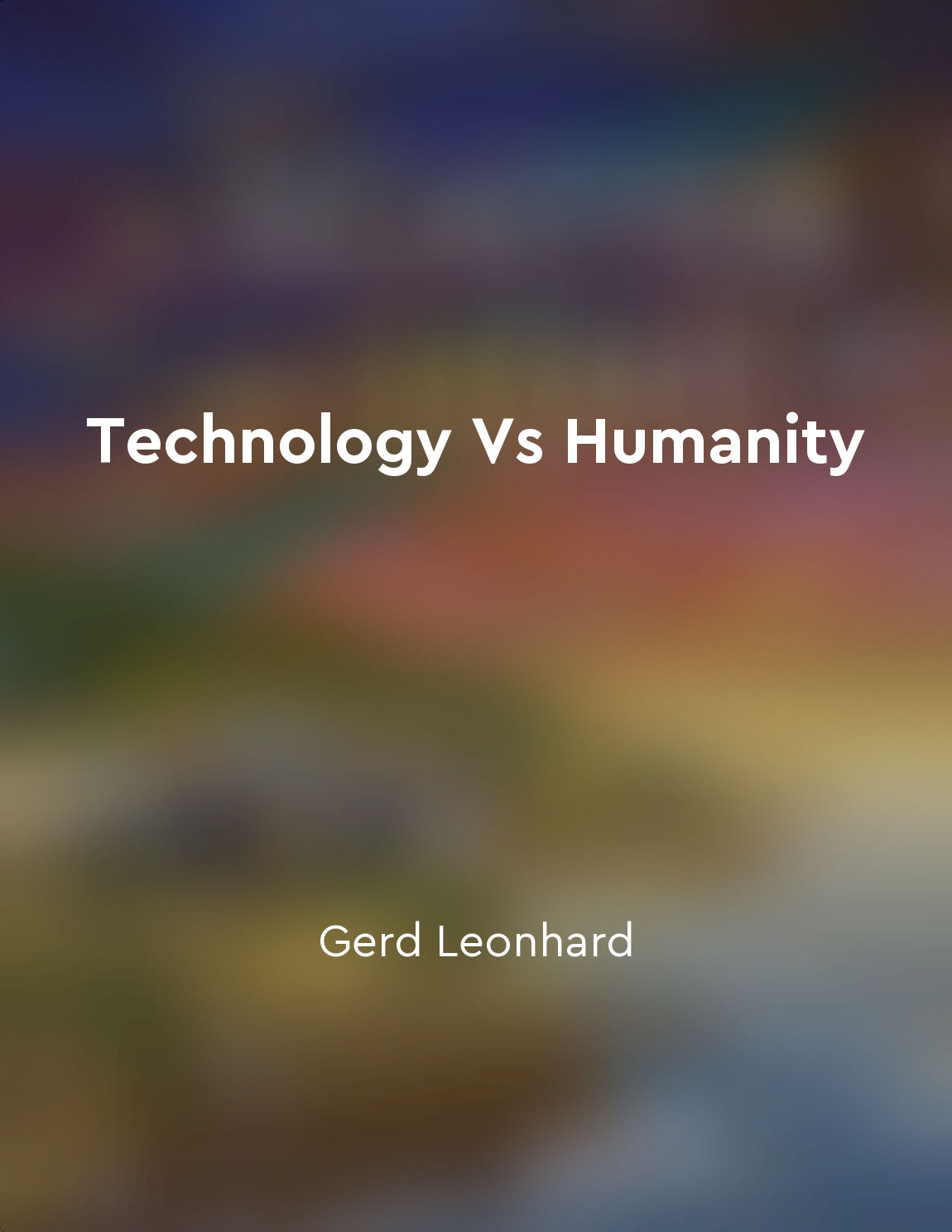Technopoly encourages a passive consumption of information from "summary" of Technopoly by Neil Postman
In Technopoly, the power of technology to shape our lives is explored in great detail. One of the key ideas put forth is that in a technopoly, individuals become passive recipients of information rather than active participants in the creation and dissemination of knowledge. This passive consumption of information is a direct result of the overwhelming presence of technology in our modern society. Technology has made it incredibly easy for us to access information with minimal effort. With just a few taps on a screen, we can find answers to almost any question we may have. While this may seem like a positive development, it has also led to a decrease in critical thinking and active engagement with the world around us. Instead of questioning the information we receive, we often accept it at face value, leading to a lack of deeper understanding and analysis. Furthermore, the constant barrage of information from technology can be overwhelming, making it difficult for individuals to sift through what is valuable and what is not. This leads to a reliance on technology to filter and curate information for us, further reinforcing our passive role in the consumption of knowledge. In a technopoly, the emphasis is on speed and efficiency, rather than depth and nuance. As a result, individuals are encouraged to consume information quickly and move on to the next piece of content without taking the time to reflect or engage critically with what they have just encountered. This continuous cycle of consumption without reflection only serves to further entrench our passive relationship with information.- The concept of passive consumption of information in a technopoly highlights the need for individuals to be more mindful of their relationship with technology. By actively engaging with the information we encounter, questioning its validity, and taking the time to reflect on its implications, we can begin to break free from the cycle of passivity that technology often encourages.
Similar Posts
Cultural preferences for long or short content
In some societies, there is a clear preference for long content. This can be seen in cultures where storytelling is deeply ingr...
Build habits that align with personal values
To become indistractable, it is imperative to build habits that are in harmony with our deeply held personal values. These valu...
Collaboration is essential for success in the digital age
In the digital age, success is no longer achieved in isolation. The interconnected nature of today's global economy requires co...
Participating is enriching
The notion that involvement leads to enhancement is a fundamental principle in our digital age. This concept suggests that by a...

The rise of automation raises questions about the future of work
The accelerating pace of automation is leading many to question the very nature of work itself. As machines take on more and mo...

Remember that humanity is the ultimate goal
In a world increasingly dominated by technology, it is crucial to keep in mind that the ultimate goal should always be centered...

The future must prioritize human values
In a world where technology is advancing at an exponential rate, it is crucial that we do not lose sight of what truly matters ...
Practicing empathy aids crosscultural understanding
Empathy is a powerful tool that can help us bridge the gap between different cultures and foster a deeper understanding of othe...
The brain adapts to the demands placed on it
The brain is a marvelously adaptable organ. It has the remarkable ability to reconfigure itself in response to the tasks and st...

